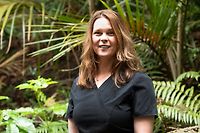Wellington, Hutt > Private Hospitals & Specialists >
Wellington Ultrasound
Private Service, Radiology, Pregnancy Ultrasound
Today
8:00 AM to 5:00 PM.
Description
- General Ultrasound
- - Abdomen ultrasound
- - Renal ultrasound
- - Small parts ultrasound
- - Vascular ultrasound
- - Musculoskeletal ultrasound
- - Ultrasound guided cortisone injections
- - Ultrasound guided FNA
- Obstetric Ultrasound
- - Early pregnancy scan 5-11 weeks
- - First Trimester Screening (NT) 11-13 weeks
- - Early Anatomy POST NIPT (14 weeks)
- - Anatomy scan 19-21 weeks
- - Growth scan
- - Tertiary or second opinion scan
- - 3D/4D Scanning
- Gynaecology & Fertility Ultrasound
- - Gynaecology scanning
- - 3D Gynaecology scanning
- - Fertility ultrasound
- - IUCD assessment
- - Tubal patency (HyCoSy)
- - Saline infusion sonography
- Procedures & Testing
- - Amniocentesis
- - Chorionic Villous Sampling (CVS)
- - Maternal Fetal medicine (MFM) referral centre
- - Fine needle aspiration
- - Cortisone injections
- diagnose disease states, such as cancer or heart disease
- show the extent of injury to body structures
- to aid in interventional procedures, such as angiography.
- Sonographers are specialised technicians who perform your ultrasound examinations.
- Consultant Radiologists and Specialist Obstetrician Gynecologists are specialist doctors who read and understand your ultrasound in detail. They also perform a number of other ultrasound guided procedures tests. They interpret the results of the images and provide a formal report of the examination to your refering clinician.
Staff
At Wellington Ultrasound, our team of highly skilled Sonographers specialises in a comprehensive range of ultrasound services, including Vascular, Musculoskeletal (MSK), Obstetrics, Gynaecology, and general ultrasound. Each of our sonographers is trained in fetal medicine which brings a wealth of experience and compassion to their practice, ensuring the highest standards of care.
Whether you’re here for a routine scan or a specialised assessment, you can count on our team for exceptional service and expertise.
Our Sonographer Team:
- Nicole
- Amanda
- Sarah
- Ross
- Clare
- Stuart
- Rachel
Consultants
-

Dr Brett Lyons
Radiologist
-

Dr Jay Marlow
Obstetrician & Gynaecologist
-

Dr Jaco Van Der Walt
Radiologist
How do I access this service?
Contact us
We accept GP, Specialist, Physiotherapist, Private, ACC and Community Referrals.
Book now: 04 8302960
For enquiries and to book by email please send your referral to: Reception@wus.co.nz
Make an appointment
Book now: 04 8302960
To book by email please send your referral to: Reception@wus.co.nz
Anyone can access
Referral Expectations
For referrers: click on the link for PACS, referral forms,referral pad order forms
Fees and Charges Categorisation
Fees apply
Fees and Charges Description
We are a Southern Cross and NIB Affiliated Provider.
We are part of the Te Awakairangi Health Network and Tu Ora Compass Health Community Radiology Programmes.
We provide our service at a reduced cost if you have a current valid Community Services Card, please ask our team at the time of your booking.
Hours
8:00 AM to 5:00 PM.
| Mon – Fri | 8:00 AM – 5:00 PM |
|---|
- Saturday: By appointment only
- Sunday: Closed
Public Holidays: Closed Waitangi Day (6 Feb), Good Friday (3 Apr), Easter Sunday (5 Apr), Easter Monday (6 Apr), ANZAC Day (observed) (27 Apr), King's Birthday (1 Jun), Matariki (10 Jul), Labour Day (26 Oct), Wellington Anniversary (25 Jan).
Procedures / Treatments
In ultrasound, a beam of sound at a very high frequency (that cannot be heard) is sent into the body from a small vibrating crystal in a hand-held scanner head. When the beam meets a surface between tissues of different density, echoes of the sound beam are sent back into the scanner head. The time between sending the sound and receiving the echo back is fed into a computer, which in turn creates an image that is projected on a television screen. Ultrasound is a very safe type of imaging; this is why it is so widely used during pregnancy. What to expect? After lying down, the area to be examined will be exposed. Generally a contact gel will be used between the scanner head and skin. The scanner head is then pressed against your skin and moved around and over the area to be examined. At the same time the internal images will appear onto a screen
In ultrasound, a beam of sound at a very high frequency (that cannot be heard) is sent into the body from a small vibrating crystal in a hand-held scanner head. When the beam meets a surface between tissues of different density, echoes of the sound beam are sent back into the scanner head. The time between sending the sound and receiving the echo back is fed into a computer, which in turn creates an image that is projected on a television screen. Ultrasound is a very safe type of imaging; this is why it is so widely used during pregnancy. What to expect? After lying down, the area to be examined will be exposed. Generally a contact gel will be used between the scanner head and skin. The scanner head is then pressed against your skin and moved around and over the area to be examined. At the same time the internal images will appear onto a screen
After lying down, the area to be examined will be exposed. Generally a contact gel will be used between the scanner head and skin. The scanner head is then pressed against your skin and moved around and over the area to be examined. At the same time the internal images will appear onto a screen
Obstetric ultrasound is an essential diagnostic tool in pregnancy. The antenatal detection of medical problems in pregnancy and with the baby is very important. Early detection enables identified problems to be managed and, in some cases, antenatal treatment can be instituted. Common concerns that can be detected or predicted include chromosomal abnormalities, a small baby, pre-eclampsia and structural problems with the baby. It is reassuring for parents when a scan shows that their baby that is developing normally. Scanning helps with pregnancy bonding, and this cannot be emphasised enough. Read more here
Obstetric ultrasound is an essential diagnostic tool in pregnancy. The antenatal detection of medical problems in pregnancy and with the baby is very important. Early detection enables identified problems to be managed and, in some cases, antenatal treatment can be instituted. Common concerns that can be detected or predicted include chromosomal abnormalities, a small baby, pre-eclampsia and structural problems with the baby. It is reassuring for parents when a scan shows that their baby that is developing normally. Scanning helps with pregnancy bonding, and this cannot be emphasised enough. Read more here
Obstetric ultrasound is an essential diagnostic tool in pregnancy. The antenatal detection of medical problems in pregnancy and with the baby is very important. Early detection enables identified problems to be managed and, in some cases, antenatal treatment can be instituted. Common concerns that can be detected or predicted include chromosomal abnormalities, a small baby, pre-eclampsia and structural problems with the baby. It is reassuring for parents when a scan shows that their baby that is developing normally. Scanning helps with pregnancy bonding, and this cannot be emphasised enough.
Read more here
Ultrasound is used to assess the structure of internal organs as they function (‘real time’ imaging). It is often one of the first types of diagnostic imaging used as it is safe and can be used to assess many body parts. Ultrasound is used to examine many parts of the body such as the abdomen, breasts, kidneys, prostate, scrotum, thyroid gland, and assess blood flow through the vascular system. Read more here
Ultrasound is used to assess the structure of internal organs as they function (‘real time’ imaging). It is often one of the first types of diagnostic imaging used as it is safe and can be used to assess many body parts. Ultrasound is used to examine many parts of the body such as the abdomen, breasts, kidneys, prostate, scrotum, thyroid gland, and assess blood flow through the vascular system. Read more here
Service types: Ultrasound.
Ultrasound is used to assess the structure of internal organs as they function (‘real time’ imaging). It is often one of the first types of diagnostic imaging used as it is safe and can be used to assess many body parts. Ultrasound is used to examine many parts of the body such as the abdomen, breasts, kidneys, prostate, scrotum, thyroid gland, and assess blood flow through the vascular system.
Read more here
At Wellington Ultrasound we have doctors and sonographers who specialise in tertiary gynaecology and fertility ultrasound. Ultrasound is an efficient and safe imaging modality with which to examine the female pelvic organs, and as such, is considered an essential first line investigation for many suspected gynaecological conditions. Read more here
At Wellington Ultrasound we have doctors and sonographers who specialise in tertiary gynaecology and fertility ultrasound. Ultrasound is an efficient and safe imaging modality with which to examine the female pelvic organs, and as such, is considered an essential first line investigation for many suspected gynaecological conditions. Read more here
Service types: Women’s imaging.
At Wellington Ultrasound we have doctors and sonographers who specialise in tertiary gynaecology and fertility ultrasound. Ultrasound is an efficient and safe imaging modality with which to examine the female pelvic organs, and as such, is considered an essential first line investigation for many suspected gynaecological conditions.
Read more here
Injections given with the help of imaging techniques like CT scans or ultrasounds. The imaging helps the doctor deliver the injection of medication to exactly where it is needed in the body.
Injections given with the help of imaging techniques like CT scans or ultrasounds. The imaging helps the doctor deliver the injection of medication to exactly where it is needed in the body.
Service types: Image guided procedures | Interventional radiology.
Injections given with the help of imaging techniques like CT scans or ultrasounds. The imaging helps the doctor deliver the injection of medication to exactly where it is needed in the body.
The Nuchal Translucency (NT) scan, commonly referred to as the '12 week scan’, is not only a screening test for Down Syndrome and other conditions, it can also be used to assess the development of your baby to reassure you and your Maternity Carer that the pregnancy is going well. Our doctors and sonographers have certified training in this important scan and you can be reassured our team are equipped to pick up any concerns. Expectant mothers can avoid many anxious moments because all necessary counselling and tests can be arranged on site. Our Fetal Medicine Specialist Dr Marlow will be by your side to provide information and support. If you choose or require invasive testing we are able to arrange this promptly for you. Read more here
The Nuchal Translucency (NT) scan, commonly referred to as the '12 week scan’, is not only a screening test for Down Syndrome and other conditions, it can also be used to assess the development of your baby to reassure you and your Maternity Carer that the pregnancy is going well. Our doctors and sonographers have certified training in this important scan and you can be reassured our team are equipped to pick up any concerns. Expectant mothers can avoid many anxious moments because all necessary counselling and tests can be arranged on site. Our Fetal Medicine Specialist Dr Marlow will be by your side to provide information and support. If you choose or require invasive testing we are able to arrange this promptly for you. Read more here
Service types: Pregnancy ultrasound.
The Nuchal Translucency (NT) scan, commonly referred to as the '12 week scan’, is not only a screening test for Down Syndrome and other conditions, it can also be used to assess the development of your baby to reassure you and your Maternity Carer that the pregnancy is going well. Our doctors and sonographers have certified training in this important scan and you can be reassured our team are equipped to pick up any concerns.
Expectant mothers can avoid many anxious moments because all necessary counselling and tests can be arranged on site. Our Fetal Medicine Specialist Dr Marlow will be by your side to provide information and support. If you choose or require invasive testing we are able to arrange this promptly for you.
Read more here
An ultrasound-guided cortisone injection is a minimally invasive procedure used to relieve pain and inflammation in joints or soft tissues. Using real-time ultrasound imaging, a Radiologist precisely targets the affected area to inject a corticosteroid medication. This technique enhances accuracy, minimizes discomfort, and improves the effectiveness of the treatment, making it a popular choice for conditions like arthritis, tendonitis, and bursitis. The procedure typically takes a short time and may provide significant relief, allowing for better mobility and function.
An ultrasound-guided cortisone injection is a minimally invasive procedure used to relieve pain and inflammation in joints or soft tissues. Using real-time ultrasound imaging, a Radiologist precisely targets the affected area to inject a corticosteroid medication. This technique enhances accuracy, minimizes discomfort, and improves the effectiveness of the treatment, making it a popular choice for conditions like arthritis, tendonitis, and bursitis. The procedure typically takes a short time and may provide significant relief, allowing for better mobility and function.
Service types: Image guided procedures | Interventional radiology.
An ultrasound-guided cortisone injection is a minimally invasive procedure used to relieve pain and inflammation in joints or soft tissues. Using real-time ultrasound imaging, a Radiologist precisely targets the affected area to inject a corticosteroid medication. This technique enhances accuracy, minimizes discomfort, and improves the effectiveness of the treatment, making it a popular choice for conditions like arthritis, tendonitis, and bursitis. The procedure typically takes a short time and may provide significant relief, allowing for better mobility and function.
Women’s imaging covers the use of imaging procedures that specifically apply to women and can help in the diagnosis and care of diseases such as cancer of the breast, uterus, and ovaries.
Women’s imaging covers the use of imaging procedures that specifically apply to women and can help in the diagnosis and care of diseases such as cancer of the breast, uterus, and ovaries.
Women’s imaging covers the use of imaging procedures that specifically apply to women and can help in the diagnosis and care of diseases such as cancer of the breast, uterus, and ovaries.
Public Transport
Bus stops are directly across the road and adjacent to our entrance on Riddiford street.
Parking
Newtown:
Free parking is available for patients of Wellington Ultrasound at Countdown Supermarket 100m from Wellington Ultrasound with access from Hanson Street or Adelaide Road.
The nearest bus stop is Wellington Hospital Stop A (Stop 6055), with routes from the city towards Island Bay/Newtown.
The Wellington Hospital Stop B (Stop 7017) has routes towards the city from Newtown/Island Bay. Please see metlink to plan your trip.
Wellington CBD:
Immediately outside the building is a P15 area for a quick drop off. Limited street parking is available, be aware charges may apply.
CBD based clients may prefer to walk up from work with lift access from Lambton Quay through the James Cook Hotel (which is next door to our building). There are many parking facilities nearby including James Cook, Plimmer Tower, Clifton and Gilmer Terrace.
We are walking distance from the central train station and adjacent bus stops.
Lower Hutt:
Free onsite parking for the duration of your appointment
Website
Contact Details
8:00 AM to 5:00 PM.
-
Phone
(04) 830 2960
-
Fax
(04) 830 2961
Healthlink EDI
wgtnusnd
Email
Website
Contact us online here
Book an appointment here
Please call us for urgent bookings - please be aware a surcharge may apply.
Ropata Health, 135 Witako Street
Epuni
Lower Hutt
Wellington 5040
Street Address
Ropata Health, 135 Witako Street
Epuni
Lower Hutt
Wellington 5040
38 Riddiford Street, Newtown, Wellington
Wellington
8:00 AM to 5:00 PM.
-
Phone
(04) 830 2960
-
Fax
(04) 830 2961
Healthlink EDI
wgtnusnd
Email
Website
155 The Terrace, Wellington
Wellington
8:00 AM to 5:00 PM.
-
Phone
(04) 830 2960
-
Fax
(04) 830 2961
Healthlink EDI
wgtnusnd
Email
Website
Was this page helpful?
This page was last updated at 10:42AM on December 1, 2025. This information is reviewed and edited by Wellington Ultrasound.

